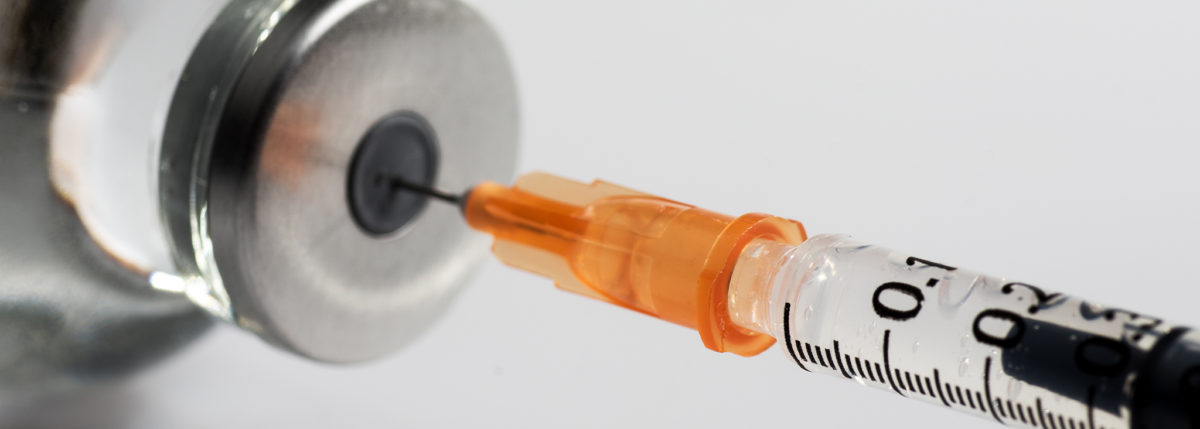Government Shutdown Leads to Insulin Rationing
Editor’s Note: People who take insulin require consistently affordable and predictable sources of insulin at all times. If you or a loved one are struggling to afford or access insulin, you can build custom plans based on your personal circumstances through our tool, GetInsulin.org.
Update: The United States government shutdown ended after 35 days on January 25, 2019.
Nine departments of government are currently shuttered, and 800,000 federal workers have either been furloughed (forced to stay at home) or are working without pay. For government workers living with type 1 diabetes, the shutdown has proven to have potentially devastating consequences.
Although the workers will be paid when the shutdown ends, that is of little help for people with bills due now. Stories have emerged of workers unable to afford basic necessities like food, power and critical medications. One such employee is Mallory Lorge of River Falls, Wisconsin. Lorge, who lives with type 1 diabetes, has been forced to ration her remaining insulin as she can not afford the $300 copay.
The Department of the Interior employee has already ignored a dangerously high blood sugar stating, “I can’t afford to go to the ER. I can’t afford anything. I just went to bed and hoped I’d wake up.” Lorge has cancelled all of her medical appointments, and told NBC News that she and her husband can probably afford another three to four weeks before they are broke. The couple has consolidated their loans, and already spent all of their savings and the money they received as wedding gifts. “It’s like being held hostage,” Lorge said. “I’ve been a federal employee for six years, and I love it. I don’t get paid much, but I love working for the American people. That the government has put us in this position is like a punch in the gut.”
After her story attracted national attention, Mallory Lorge received insulin donations from the community and is no longer rationing her insulin.
This isn’t the first story to emerge about people with diabetes affected by the shutdown. Last week CNBC reported that a tax examiner for the IRS in Chicago has been unable to pick up his $200 insulin prescription. The government employee, referred to as Leo, went on to say that he has to save every penny, and will rely on his credit card if the shutdown persists. And these two workers aren’t alone. Thousands of GoFundMe pages have been created for government employees affected by the shutdown, many asking for money to cover medical expenses. As this shutdown continues, the number of people who cannot afford their medication is sure to grow.
For individuals with high out-of-pocket healthcare costs—like insulin—the timing of the shutdown couldn’t be worse. High deductible health plans reset deductibles on January 1, meaning many people are stuck paying list price for their monthly prescriptions at the pharmacy until their insurance plan’s deductible is met. For a month’s supply of insulin, this could range from $200 to upwards of $1000.
The high cost of insulin in the U.S. affects many non-government employees as well. A November 2018 study from Yale University found that one in four patients with diabetes at a clinic in the United States underused their prescribed insulin because of cost concerns.
Mounting pressure from patient advocates has led to some preliminary measures aimed at tackling high insulin costs in the US.
On Monday, January 14, The House Oversight Committee announced that they are investigating the actions of a dozen pharmaceutical companies. The panel is seeking detailed information about the increase in prescription drug prices for AbbVie, Amgen, AstraZeneca, Celgene, Eli Lilly, Johnson & Johnson, Mallinckrodt, Novartis, Novo Nordisk, Pfizer, Sanofi and Teva Pharmaceuticals. Chairman Elijah Cummings (D-Md) said in a statement that, “The goals of this investigation are to determine why drug companies are increasing prices so dramatically, how drug companies are using the proceeds and what steps can be taken to reduce prescription drug prices.”
Last week, Representative Bobby Rush (D-Ill) introduced the “Insulin Access For All Act”, which would eliminate the cost-sharing requirement for patients on Medicare and Medicaid so more people living with diabetes have access to this life-saving medication. In December, United States FDA Commissioner Scott Gottlieb, M.D. released a statement detailing a handful of new guidances designed to increase competition and bring down prices across the insulin market. The changes are slated to take effect in 2020.
As the days tick by, the negative ramifications of government employees going without a paycheck will continue to grow. For people with type 1 diabetes who need insulin to stay alive, this has dangerous and serious consequences.
If you live in the United States and need help getting insulin or want to learn more about the growing advocacy movement, click here.





